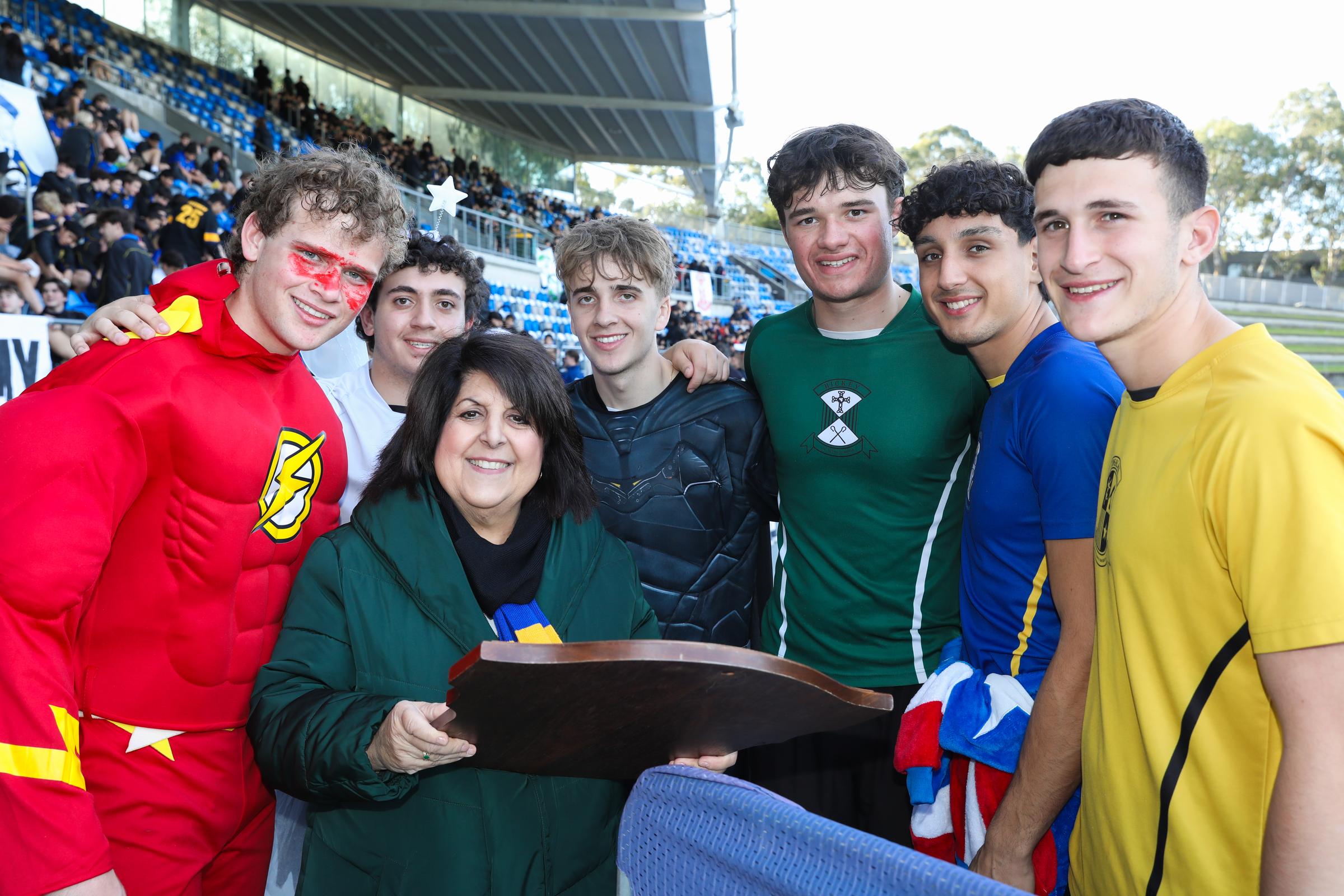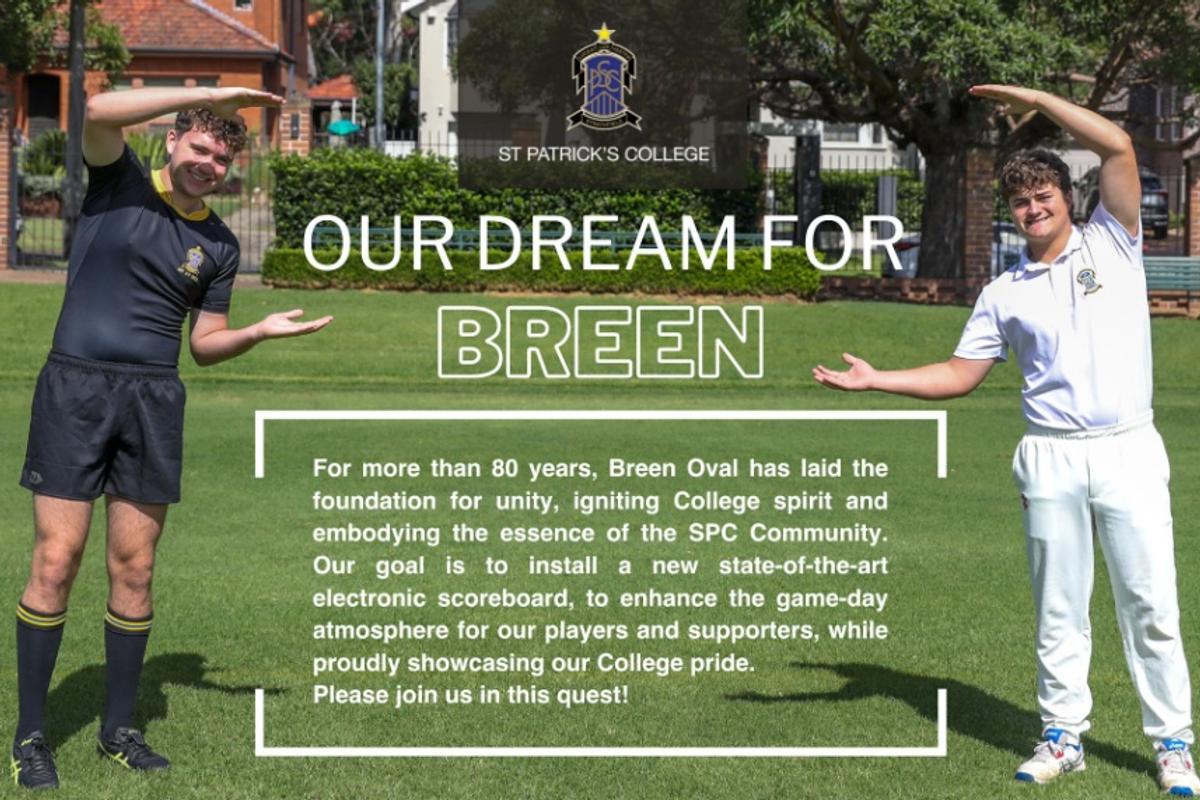Principal

Student Self-Regulation: The Superpower That Gets Results
In reviewing the Semester One reports, the Wellbeing Team is tracking the Student Attribute Average (SAA) and Grade Point Average (GPA) in order to identify students who need more support and guidance.
It is no surprise that students who have experienced a shift down in grades are the ones experiencing a decline in the attributes needed in order to progress. There are many of our lads who are challenged to be self-regulated. Self-regulation and executive functioning skills are crucial for managing thoughts, feelings, and actions to achieve goals. These skills, which include working memory, mental flexibility, and self-control, act like an "air traffic control system" in the brain, helping us plan, focus, and adapt to different situations. Developing strong executive functions supports a child's ability to self-regulate, manage emotions, and succeed in various aspects of life.
Parents/carers get frustrated at trying to get their son to improve their self-regulation, but the good news is that it is a learned skill. And just like learning to read, ride a bike, or play an instrument, our kids can improve their self-control with practice, guidance, and the right tools — no matter their age or temperament. (And so can we.)
Three Self-Control Strategies That Work — At Any Age (adapted from research of Dr Justin Coulson)
Whether you’re parenting a four-year-old or a fourteen-year-old, here are three practical, research-backed strategies that help children build better self-control:
Distraction and Attention-Shifting
Temptation thrives on attention. The more kids focus on the thing they want (the lolly, the device, the comeback in an argument), the harder it is to resist. Help your child shift their focus. Younger children might need a change of scenery or a new activity. Older children can be encouraged to engage their minds elsewhere — a different task, music, movement, even humour. Shifting attention isn’t avoidance. It’s smart regulation. Look at the cloud. Go for a walk. Sing a song. Pray or meditate. Shift focus and increase control.
Reframing the Situation
The way we think about something changes how we feel about it. If a child is obsessing over not being allowed something, help them see it differently. For little ones, this might sound playful: “Imagine that biscuit is actually a piece of broccoli.” For older children, it might mean encouraging them to look at the bigger picture: “Will this still matter tomorrow?” or “What’s the most helpful way to handle this?”
Using a Role Model — The ‘Batman Effect’
A powerful technique, especially for younger children, is to have them imagine what someone they admire would do. “What would Batman do?” “What would Wonder Woman say?” For teens, this evolves into a question of identity and values: “Who do you want to be right now?” “What would someone you respect do here?” Stepping outside ourselves, even momentarily, gives us clarity and control.
What About Kids Who Struggle More Than Others?
Some kids — including those with ADHD, anxiety, or other challenges — may find self-control especially hard. The research tells us that the same strategies still work, and in fact, they often benefit these children even more. With consistency, support, and understanding, they can absolutely grow in this area. Your biggest challenge here will be that it takes a bit of extra work. But that’s the case for most things where these challenges exist.
And What About Us?
Let’s not forget — self-control isn’t just a challenge for kids. As parents/carers, we’re often running low on patience, energy, and calm. When you feel like you’re about to snap, try these quick self-control strategies for yourself:
Use your name in self-talk: “Jess, take a breath. You can handle this.”
Zoom out: Ask, “Will this still matter next week?”
Get into nature: A few minutes outside can reset your whole nervous system.
Our kids catch our calm (or our chaos). The better we regulate ourselves, the easier it is for them to learn to do the same.
Final Thoughts
We’re not aiming for perfection. We’re raising humans, not robots. Our children will still have meltdowns, make impulsive decisions, or act before they think — just like we do sometimes. But every time we coach them through those moments, we’re giving them tools they’ll use for life. So next time your child is about to lose it — or you are — remember this is not a character flaw. It’s a learning moment. And with time, support, and the right tools, self-control can be learned. And your calm, consistent presence? That’s the best teaching tool of all.
Fund-Raising
As our parents are acutely aware, St Patrick’s College Strathfield does not attract any government funding for capital works because of the aggregated socio-economic status of its students and families.
There are only two ways to get funding for capital works – fundraising drives or increasing school fees. We are committed to only increasing school fees to meet the rising costs of salaries and the cost of maintaining the plant and facilities.
Many parents have asked me why we do not adopt the fundraising strategies used by other independent schools, and my response remains the same. Those schools have salaried staff whose specific jobs are to focus on hosting events and personally connecting with current parents and alumni. The cost of such positions is in excess of $200 000.00. My preference is that such salaries are directed towards our teaching and support staff so that the boys get immediate benefit.
We currently have two capital works in the hands of an outside project management company in order to best address all Development Applications with our Council: the proposed Breen Oval scoreboard and the air-conditioning of the Dean Gym. We are close to getting approval and beginning works.
However, we are well short of the $200 000.00 cost of the electronic scoreboard as we have only fundraised $39 042.38.
If you haven’t already pledged money for the scoreboard, which is tax-deductible and registered with the Australian Sports Foundation, you can still do so here via this link:
A $100 donation from each family would raise $164, 900 and we would reach our target.
We are now commencing fundraising so that we can refurbish and replace outdated equipment in the Farrell Weights and Fitness Room. We now have a full-time Head of Athletic Development, Mr Jack McCann, who has been supporting our students to achieve maximum fitness and developing expert return from injury programs. This is now the appropriate time to refurbish the Farrell Room with equipment that Mr McCann deems as necessary. Any amount of donation would be appreciated to reach our $80, 000 target (about $50 per student). Again, all donations are tax-deductible and can be made at:
Farrell Weights and Fitness Room
Staff News
Next Monday, 25 August, will be Ms Christine Daoud-Aytee’s last day at SPC. We wish her well in her new school and for her wedding in 2026. She will be replaced by Ms Ella Heffron until the end of the year.
Ms Lara Benham has advised me of her resignation from the College at the end of this term. We are currently seeking a replacement, and I will advise the community once this appointment is finalised.
Mr Joshua True, Head of Vocational Learning, has also tendered his resignation from the College and will be taking up a role as an Education Consultant at the Association of Independent Schools NSW. He will finish up his time at the College at the end of this term.
Dr Vittoria Lavorato
Principal
SPC boys can do anything!
**except divide by zero

